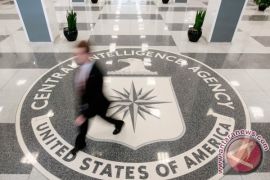Another top member of the Bush administration, former defense secretary Donald Rumsfeld, credited the use of so-called "enhanced interrogation techniques" with yielding "a major fraction" of US intelligence on Al-Qaeda and called ending them a "mistake."
In one of the first acts after entering the White House in 2009, President Barack Obama suspended such methods, equating them with torture and saying they represented all that was wrong with the Bush-era "war on terror."
But the killing of bin Laden, or more exactly the way the intelligence was gathered that led the CIA to track him down, has reopened a raging controversy in the United States over their use.
Cheney, speaking on the "Fox News Sunday" program, said top intelligence officials had stated that "some of the early leads" that helped agents find bin Laden had come thanks to the harsh interrogation techniques used on terror suspects.
"All have said one way or the other that the enhanced interrogation program played a role," he said. "My guess is that`s probably the case that it contributed, just as did a number of other factors."
Asked whether the methods should be reinstated if the United States were to capture a new high-value target, Cheney replied: "I certainly would advocate it. I`d be a strong supporter of it."
Rumsfeld said three former CIA directors -- George Tenet, Porter Gross and retired general Michael Hayden -- say suspects subjected to waterboarding during CIA interrogations provided a "major fraction of all our knowledge about Al-Qaeda."
"I think that it`s clear that those techniques that the CIA used worked. And to have taken them away and ruled them out I think may be a mistake," he told CBS television`s "Face the Nation."
Cheney also dismissed the notion that waterboarding, or simulated drowning, amounted to torture, saying he and the rest of the Bush team had gone to great lengths to ensure what they did was legal.
"Waterboarding and all of the other techniques that were used are techniques that we use training our own people," he said. "This is stuff that we`ve done for years with own military personnel and to suggest that it`s torture I just think is wrong."
Vice president at the time of the September 11 attacks, Cheney was one of the Bush administration`s biggest hawks as the United States launched its invasion of Afghanistan and the hunt for bin Laden.
A vehement opponent of Obama, he has nonetheless congratulated him on killing the of Al-Qaeda chief, while paying tribute to the "tireless work" of the US military and intelligence services.
Key intelligence over the identity of a courier -- among the few men bin Laden trusted, passing messages from the him to commanders in the field -- ultimately led US agents to the Al-Qaeda leader`s compound in the Pakistani garrison town of Abbottabad.
And detainees once held at secret CIA "black sites," or secretive prisons, were linked to the courier, known as Abu Ahmed al-Kuwaiti, in previously classified intelligence assessments of Guantanamo prisoners released by whistleblower website WikiLeaks.
Kuwaiti has been identified as a protege of Khalid Sheikh Mohammed and assistant of Abu Faraj al-Libbi, another key Al-Qaeda operative.
Some Republicans and Bush officials have claimed the pair may have revealed important details about Kuwaiti`s identity after being subjected to harsh interrogations.
"Information provided by KSM and Abu Faraj al-Libbi about bin Laden`s courier was the lead information that eventually led to the location of [bin Laden`s] compound and the operation that led to his death," Jose Rodriguez, who headed the CIA`s counterterrorism efforts from 2002 to 2005, told Time magazine this week.
Yet some Obama administration officials have hit back at such claims, insisting that they finally identified bin Laden`s whereabouts after years of intelligence gathering from a broad variety of sources.
White House National Security Adviser Tom Donilon told Fox News Sunday that enhanced interrogations were "not consistent with our values, not consistent and not necessary in terms of getting the kind of intelligence that we need." (B002/K004)
Editor: Kunto Wibisono
Copyright © ANTARA 2011






